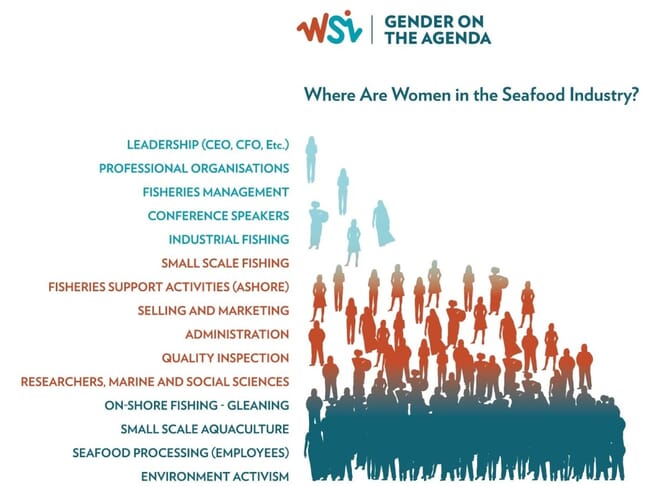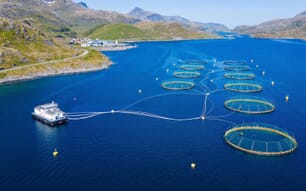A report released by Natalia Briceño-Lagos and Marie Christine Monfort, from the international organisation for Women in the Seafood Industry (WSI), states that : "at this point of the pandemic, though we can’t fully depict what the consequences will be on both genders, we can ascertain that the coronavirus outbreak will hit women harder than men, threaten progress made in empowering women and will deepen gender inequities already pervasive in this economic sector.”

© WSI
“WSI will watch how the contagion of the economic downturn hits both genders in fisheries, aquaculture and the entire seafood value chain, and will examine more closely the situation that women encounter.”
They point out FAO’s estimates that women comprise 15 percent of the harvesting workforce, 70 percent in aquaculture, 80-90 percent in seafood processing. They also represent 60 percent of seafood traders and retailers in Africa and Asia.
They also note the comparative lack of women in executive roles, which contrasts with their preponderance in more lowly positions in the seafood sector.
“Women mostly present at the bottom may have to continue their working activities to get an income, the opportunity to stay at home like those at the top not being offered to them. Occupations in processing plants and on retail markets have higher exposure to the virus, and women are behind them,” argue Briceño-Lagos and Monfort.
Loss of employment is another important factor.
“The fall in business revenues will inexorably result in the reduction of costs by laying off workers, starting with temporary and casual ones disproportionally occupied by women. For instance, this is already happening in the Chilean salmon industry which is reducing the production capacity of its plants by almost half and layoffs are already happening among precarious workers. We have already seen the early effects on the seafood business and fishing communities relying on imports from China,” they note.
“The widespread work-from-home movement will enable millions of workers to keep their jobs and their salary partly or fully. But this arrangement is largely available to white-collar workers. In the seafood industry, those office workers protected by full time work contracts are mainly men. Women in low-paid jobs with insecure employment conditions are at greater risk of losing their income. When women lose their income, they severely cut budgets supporting the well-being of their children, households and communities (housing, food, healthcare or childcare),” they add.
In order to get a clearer picture WSI will now attempt to gather gender disaggregated data in the fisheries and aquaculture sectors and will try to ensure that women are a part of decision-making process that public authorities will engage with.
“When we are ready to get back on our feet and get the blue economy going again - hopefully a truly sustainable version of the blue economy - decision makers must consider the gender organization of the industry. We otherwise predict that responses will fail and increase inequalities between women and men. Research from other types of health crises has shown that leaving gender inequalities out of the crisis response has further compounded those inequalities. WSI considers that if we want to find the most effective ways to deal with COVID-19, all workers, especially women, need to be listened and associated in building future responses,” Briceño-Lagos and Monfort conclude.


